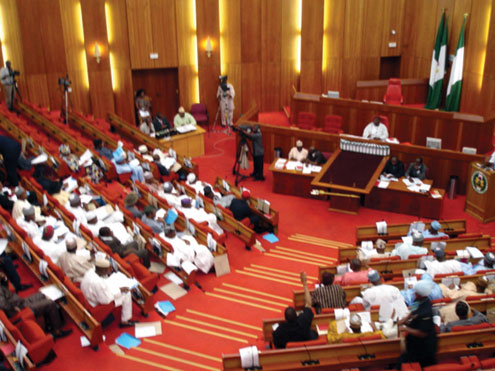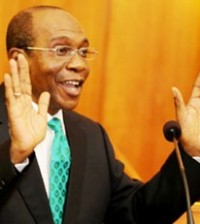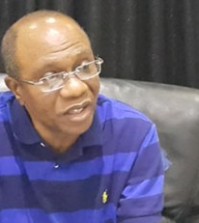Bank executives’pay not regulated, says CBN
The Central Bank of Nigeria (CBN) has said it will not interfere with banks’mechanisms for determining executive compensations despite global demand that financial institutions match directors ’paywith performance.
CBN Deputy Governor, Financial Systems Stability, Kingsley Moghalu, who spoke to The Nation, said the issue of executive compensations is left in the hands of banks to decide.
He however, said it will be considered in the ongoing reforms.
Investigations reveal that in most banks, big bonuses still flow, even when bank executives miss targets with only a few banks adapting to performance-based pay. Currently, bank managing directors that are stakeholders, or part owners, earn minimum of N120 million per annum, and for hired MDs, the industry average is N100 million per annum. Industry pay average for bank executive directors is between N60 million and N70 million per annum across board.
The banking watchdog insisted it is not keen on reviewing bank executives’ pay packages for now. “The Central Bank is not looking at executive compensation review at this time. As we move on, there is going to be issues on compensation for bank workers, but we are not there yet. This does not stop individual banks from working out modalities or framework for compensation. We will certainly encourage that,” Moghalu said.
Currently, boards of respective banks determine their executives’ pay.
The Deputy Governor, who spoke during the signing of Memorandum of Understanding between International Finance Corporation (IFC) and Financial Institutions Training Centre (FITC) on corporate governance for banks, said in the context of corporate governance, executive compensation is one of the issues to be dealt with. He explained that in the meantime, FITC can still train bank directors on compensation issues and even go further to design modalities for executive remunerations. The apex bank, he reiterated, will certainly encourage that.
He stressed that enhancing corporate governance practices is one of the pillars of the on-going reform programmes for the banking industry, adding that partnership between IFC and FITC will create optimal contributions to developing the financial sector.
IFC Country Manager, Solomon Adegbie-Quaynor, said: “IFC actively promotes good corporate governance globally and through partnership with FITC will seek to play a crucial role in building corporate governance practices in the banking and financial services sector in the country.
International corporate governance and capital markets expert, Simon Wong, said there was a weak link between remuneration and performance at the top and the banks’management.
Wong, who is a member of Forum’s Private Sector Advisory Group (PSAG), said bank executives have too much influence over their pay and incentive schemes, a practice that has encouraged excessive risk-taking.
He advised that a minimum of 50 per cent of bank executives’ compensations be paid in shares, share-linked or other non-cash instruments.
He recommended that executives only get 30 per cent of their pay in cash and another 20 per cent from large bonuses. He also said banks should look into deferred compensation in equity or equity-linked instruments to compel the executives to make constructive sacrifices for the growth of the institutions.
FITC Managing Director/CEO, Lucy Newman, disclosed that FITC has been designing and delivering continued education programmes for directors of banks and other financial institutions for about three decades. According to her, FITC and the Forum intend to cooperate to build a corporate governance centre for the training of bank directors in the country.
This, she said, is expected to enable FITC to enhance its capacity as a centre for the training of bank directors, with initial focus on the banking sector in the country and thereafter extend within the Sub-Saharan African Region.
She disclosed that the partnership between FITC and IFC will also look at producing a curriculum adapted to the Nigerian context and training trainers on the Corporate Governance Board Leadership Training Resources.
Source : The Nation








